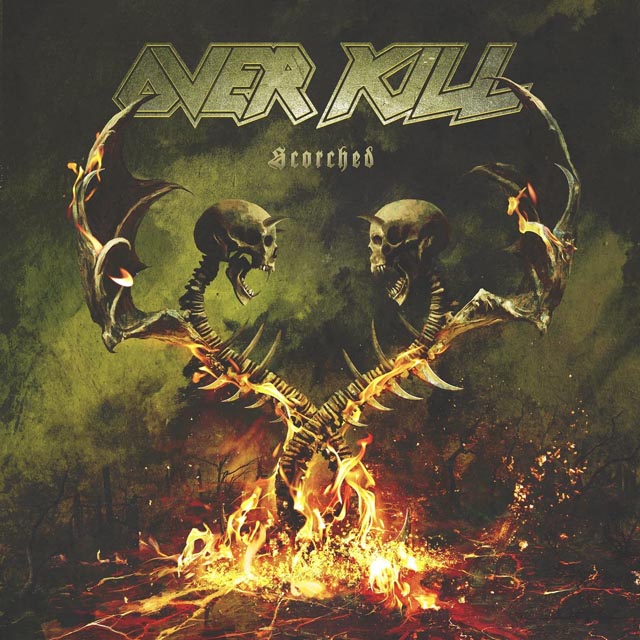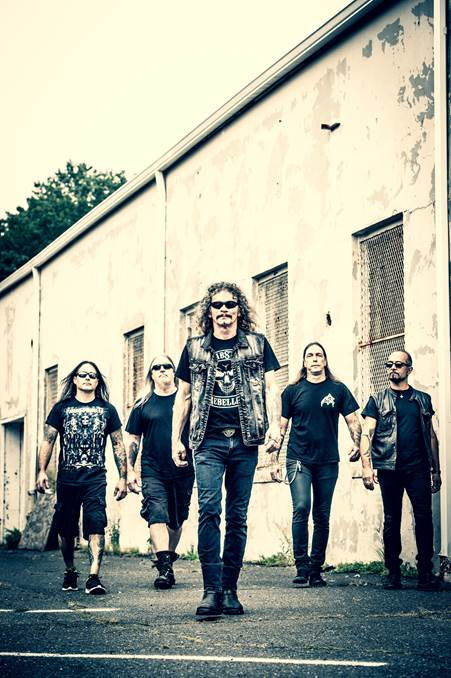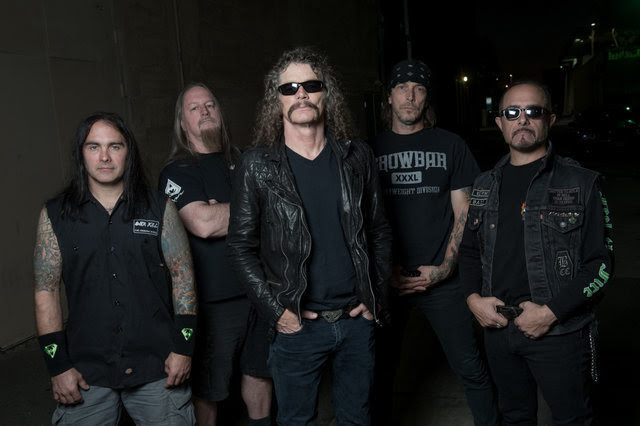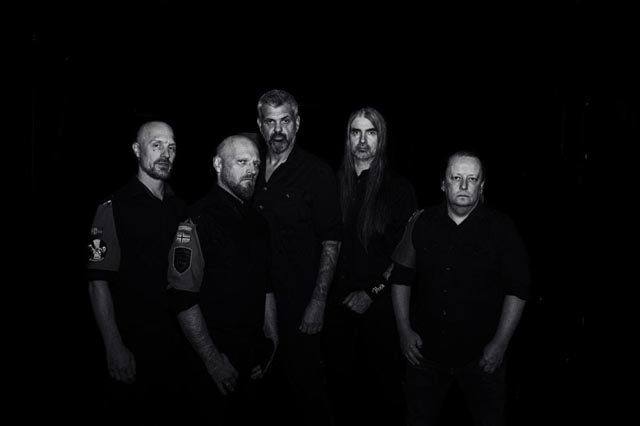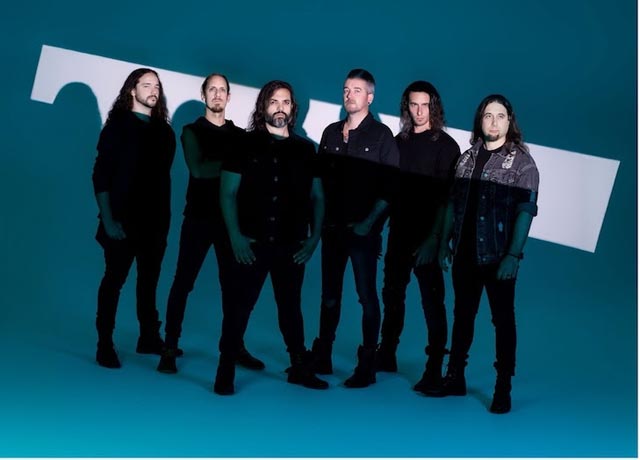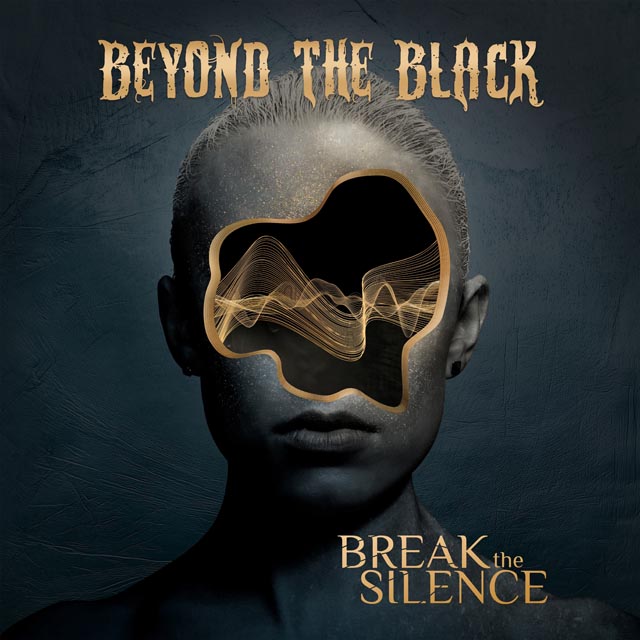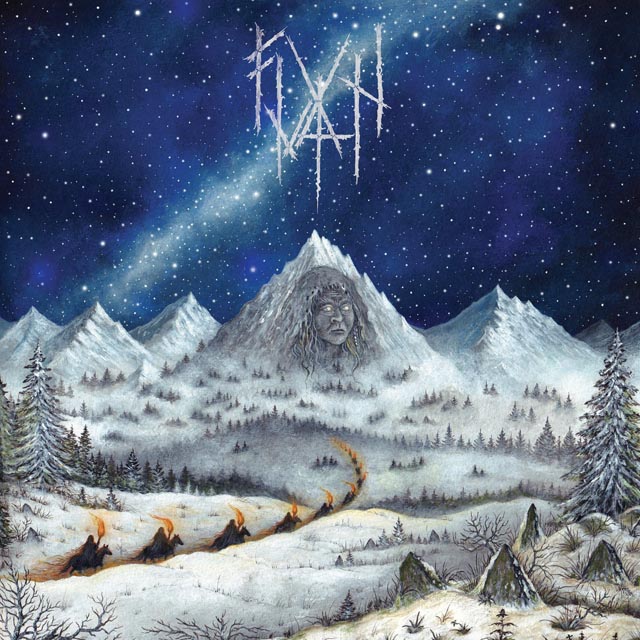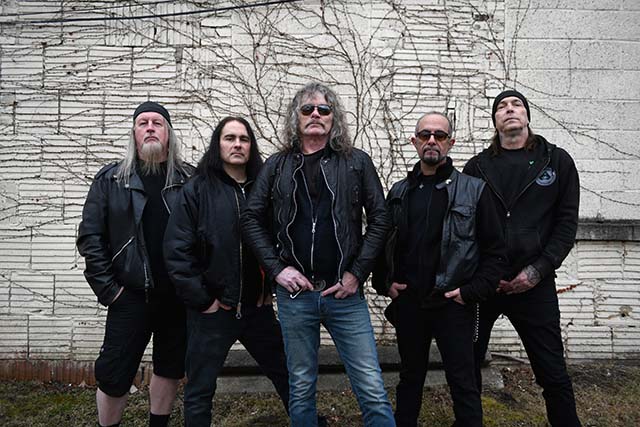
Overkill released their twentieth full-length effort, Scorched, on April 14th via Nuclear Blast. As Metal Insider noted in our review, the group never compromises and puts out music they simply want to play. Scorched is a relentless and powerful record that showcases the struggles we have all encountered during the pandemic. Despite being three years into this new reality, albums recorded during the lockdown days are still being released. Tours continue to be scheduled or rescheduled after over a year of no live music. The pandemic has affected us all, and this is reflected in the new Overkill record. Metal Insider recently caught up with Bobby “Blitz” Ellsworth to discuss these challenges, as well as the strengths of yet another fantastic Overkill album, and to look back on the thirty years since the release of 1993’s I Hear Black.
I read that the recording process for Scorched was unique with all members recording on their own. What were some of the challenges and benefits from this approach?
Well, you don’t know when you’re going into it, what it would be, and that we have no choice. Like the rest of the world, this was dictated that was the rule around the pandemic. That was why that happened. So nobody could get into a room together. Nobody could travel, you couldn’t get into a studio. I mean, in some cases, we had to sneak some shit. I mean, got Jason into a place doing drums, and I snuck into another place and did some vocals. But it was weird at the beginning, because we have always, over the course of 19 records prior to that, have at least done the drum tracks together. And now, we’re working totally remotely. So I was kind of curious to see what was going to happen, what the result was going to be. But I think because we’ve obviously embraced the modern day and technology, and just kept the lines of communication open, it actually worked out, because instead of a two-year window between records, we now had a four-year window, and it gave us that much more time to achieve, I’d say, that much more results.
So this was recorded during the peak of the pandemic.
I would say the demo… I mean, we got shut down on the 12th of March, 2020. I think I actually used that in one of the lyrics, “3/12/20 all shut down.” That’s one of the lyrics. But I was home by the 14th. I possessed the demo right then, in a skeletal form. So the tour was canceled, I’m home. DD had written a skeletal version of the demo. The drums were being done by June. It was completely within the parameters of the pandemic.
It’s just so crazy how, still, three years into this, we’re still seeing the aftermath of everything. Albums that were recorded are finally getting released and tours are finally happening like mad.
Yeah, well, people want to start living again. I know that when I wrote my part of this, of Scorched, it was shitty. I’m not going to say the parts were shitty, but the mood was just down, it was low, it was depressive. So I started tearing apart. I just said, “I’m going to do this… If I have all this time to do this, I am going to make sure this is an Overkill record by the time I’m done, not just some guy sitting in his house whining because he can’t go see his friends.”
“The Surgeon” was the first single that was released. Can you talk more of the inspiration and how that one came together?
Well, I think if you listen to that, I mean, one time through, you can kind of hear it’s kind of an Overkill 101 approach. It’s Overkill fourth-year math. It’s just the way that we do things. And we thought it would be a great first single for reintroduction to the public or to those who were wondering what happened to us, to be able to say, “Hey, it’s still here, it still exists, and it exists at a high level. And here’s the audible proof of that.” It’s a thrasher. It’s probably the most unique quality of this record, is that it contains so many different riffs in it, but they’re all sewn together seamlessly, which it’s really the hardest thing to do. And in this case, the seamlessness doesn’t make it seem like there’s five riffs in that song. Lyrically, this is one of the ones that was heading in that direction, where it was being pandemic-influenced with regard to the “everyone else you control but me”, or “everyone else you control but us,” us collectively. And then by the time I tore it down and kept coming back into it, it was really about curing the infection and pushing back, letting the blood out, let the bad out, let the good in type of a lyrical feel to the whole thing. See, out of that pushback instead of surrender, lyrically, to that Thrash 101, I think you get a really good kind of a positive energy and result on.
That is awesome that it started out as a negative, and putting some sort of positive twist to it, that’s pretty impressive actually.
Yeah, I mean, not to quote the great, but “we’re not going to take it”, right? I mean, we’ve always kind of been those guys. It’s hard for us to really give a shit about what you think about us, because I’m at Jason’s. “Ah, I really don’t like the record.” “Ah, that’s too bad. We’ll see you later. Yeah, maybe next time, maybe never.”
That’s the best.
Yeah, but I do think that the “we’re not going to take it” pushback type of the word. Or how about this? I’ve had enough of this bullshit. We don’t care what you say. That’s another great word. But I think that became inspirationally positive with regard to what the results are of this record lyrically.
Can you talk more about the songs “Wicked Place” and “Fever?”
“Wicked Place,” to me, I mean, that’s probably my favorite tune on the record. This is something that, when it opens up, it sounds like a big crunching metal tune. And then when that riff starts swinging back and forth in there, it’s an old blues ride, is all it is. It’s this old shit that, when I was a fucking paper boy in Rockland County, New York, I mean, this is the kind of shit I was listening to, it was just slower and didn’t sound as good. And it was stuff I would sing when I was in the shower, whether it be Foghat, whether it be Led Zeppelin, or whether it be Black Sabbath. There was a formula to that music back then, and this is a spawn of that formula. It’s not exactly one of those ’70s songs, but it swings back and forth like a pendulum. And the beauty of the song is that it’s rooted deeply in history, but it has an absolute fresh coat of paint on the face, which brings it up to speed in 2023. So it’s really like experiencing two eras with one listen.
This is a very well thought out album, having more time during the pandemic to do it.
You mentioned Wicked Place, and then you mentioned Fever. If you look at the record as a whole, before I get into explaining that tune, the record is eclectic. It is elements of that blues ride that I just talked about, and rock and roll, a little bit, from the ’70s, when rock and roll had a crunch to it. It has traditional heavy metal. Songs like Goin’ Home or Won’t be Comin’ Back are traditional heavy metal songs with melodic vocal hooks to them. They’re not just thrash songs, just thrash like The Surgeon. There’s aggressive thrash and blast beats, like Twist of the Wick. So it’s all over the fucking map.
So the hard thing to do was to make that an Overkill record, to make it unto ourselves as opposed to just unto all these characteristics. And we tied it together, obviously, with tonality, the mix, my voice, DD’s bass, and now it becomes an Overkill record. But me, I come in here, and it’s the end of the tour. I’m living in a house by myself at this point. My dog had passed away. I’m like, “Geez, I got to do this fucking melody thing from this Fever song.” It’s mellow like the front end, and it’s a little moody, and I’m doing these whispering things and all this other happy horse shit that has nothing to do with me, and I’m just ruining the whole song. I mean, I’m ruining it. So the mellow part happens, then all the sudden the heavy part happens. And I’m like, “I got the heavy part.” And as soon as they hit that heavy chord, it’s that tuned down solo, it’s in that A, it’s breaking all of grandma’s dishes that are up on the mantelpiece, because they’re falling off because the whole house is like…
In any case, I just threw it all away and just said, “What would I do if I was going to do this,” instead of overthinking it. And I was out in the kitchen, and I think I was making linguine and clam sauce, and I was singing Over the Mountain by Ozzy. And I said, “Ozzy just sings. He just makes it right by just opening his fucking mouth.” And I came in and just opened my mouth in the studio to that, in my little studio, and it just worked. And it was just, to me, it was an amazing feat that I complicated something by overthinking it, when the reality is, is that always was there in the simplicity of just opening my voice. And it’s one of my better successes on the record, is the song, because of how eclectic it is between the two separate parts.
Sometimes, the most simple thing is the most difficult.
Yeah. You’ve just confirmed what I say. I could have just said that. Thank you.
I struggle with simplicity myself, so I’m like, “I relate to this.” I mean, not by music, but just in life in general. And it’s just so like, “Why is it that the simple things are the hardest for us?”
It’s because we overthink shit. You know what I mean? I mean, why was the pandemic so hard? Because it was really overthought, if you think about it as opposed to simplicity. If everything is made just a little bit simpler, I think everything would flow a lot easier.
Looking back, there’s a lot of things that could’ve been done differently. But it brought in so much hatred between this country, which is really sad.
Well, it was divided crying. All this was, was just gasoline on top of the fire. That’s what it really was. And it was really cynical. I think that as much as the hatred was accentuated through both sides of the press, I think that you never got to see the stories of unification through it, because that’s not clickbait. There’s a lot of good shit that happened out there too. So it’s just that it doesn’t get the front page.
No, of course, because negativity is what gets the most attention, I guess.
And fear. I mean, that’s as simple as it is.
Oh, yeah, that.
It’s just like one side’s afraid of the other side. I remember, when I was kid, my father, one of the things he taught me when he taught me politics, it was just a very simple version of it. And he loved debating with his friends who were in the other party, for instance, but I mean a goodhearted, over 12-year-old scotch debate. You know what I mean? With smiling faces and knee slaps. I mean, that seems to be long gone in the current day, but let’s hope we can get it back soon.
Yes, that would be very nice, to get along with people with opposing views, just laugh at them and then call it a day type of thing. Now, this year actually marks the 30th anniversary of I Hear Black, and I want to know if you have any fun memories or moments that you would want to share about recording that album.
Well, it was a different record for us. You need to know what happened prior, and that’s after Years of Decay, Bobby Gustafson leaves. He’s an instrumental part of the band, really the main riff writer. Not a complete song writer, but had many of the riffs. Merritt Gant and Rob Cannavino enter in Horrorscope, but DD and I write 95% of the record. Or, wait, Rob wrote a riff in, I think, in an idea for a song, but I finished it. They wanted to write, Merritt and Rob, when we got to I Hear Black, so it was a really different scenario for us. DD and I had been partnering, to some degree, since Feel the Fire, with Bobby and the other guys in the band, but now it was going to be two new guys.
And I think the record got confused, because it was a learning process for me to write with Cannavino and to write with Gant. And I think they had some good ideas, but I don’t think it all culminated as a complete record. But I don’t remember the time as being like this funny, happy kind of time. I mean, there were jokes and good fun we were having when we weren’t recording, etc., but I remember the recordings as being just a little bit more so toward the tense side during that record. And I think it kind of reflects a little bit in the mix, but I still think that that record’s got some really good material on it. It just needed another two or three months to develop.
Between surviving the pandemic to changes with the lineup and technology, how have you adapted over the years to the constant changes and challenges throughout your career?
When you first experience change, again, it’s fearful. It’s like, “Oh, no, we can’t. We’re two records in, you can’t leave the band.” And that was our first change, that was the drummer Rat. But I started looking at change, after it happened a few times after, that all the results of the change were actually okay, that what you made of the change as opposed to fearing it before it even happened. And we got Sid Falck after Rat, and Sid turned into a great drummer, and he really made The Years of Decay and Horrorscope as good as they are. It just couldn’t have been done without that change, is what I’m saying.
So I think when shit happens now with the band, it’s not that I don’t care, I do care, but we have Jason Bittner now on the drums. And Jason was shining on the record Scorched, because he’s now had over a five-year period to have been playing with us and simultaneously writing with us, gone through the pandemic with us, understands the whole band, and brought everything out. So there’s part of me that just doesn’t give a shit. I just don’t care. And it’s good to not care. But that probably comes with age, too. So I’m actually okay with all of this. I do say, though, that the pandemic was the worst time in a band for me personally, because it just took me out of what I did. I mean, this was the longest time that I had not stood on a stage in front of people. That’s my drug, and I’ve been chasing that high since the 1980s.
Yeah, I was going to say, because you guys are always, always on the road, and that must have just been a shock in a way.
Well, I think what it was, if somebody said, “Listen, we’re going to have to shut down for six months,” you’d say, “Okay. I got to get my shit together for six months.” And really, that’s kind of what it was, “Okay, we’re shutting everybody down till May. Okay, we’re going to extend it till June. Okay, we’re going to extend it till September. Oh, December months, everybody will be outside.” Joe Biden’s on the TV saying, “Maybe you can see your family on the 4th of July.” I said, “Maybe? Are you out of your mind? I’m going with or without your okay.”
But you couldn’t stand on stage. And other people couldn’t do what they wanted, see people, see elderly, visit, travel, many of their hobbies were all put on hold. So, I don’t know, I think the one lesson that we’ve all learned is that, “Uh-uh, no more of this. No, no, no, no, no, no. No, no, no, no more.”
Yeah, I mean, humans need to socialize and interact, that’s in our nature. And taking that away from us for so long, it’s definitely cut… I mean, it had its good moments, like now there’s more opportunity to work remotely, but it has, as you said, a lot of the negative side effects.
Yeah, the damage did. For sure, it damaged a generation. There’s definitely… Anybody who says, “Oh, I’ll just work remotely, and I only want to work four days a week, and then I’m just going to go see my three friends on the weekends,” I think you’re missing out on a lot of shit out there.
Yeah. But now that life is back, and going back on the road, I know you have the European tour, but what plans do you have later on down this year?
We’re pushing for something in June/July in the States. It’ll be a first summer tour over in the States for years. I can’t remember the last time we’ve toured the summer here. And I’m really excited about that because, to me, it’s one of the most comfortable times to tour and be around the States and sing. Whether you’re in California or Texas or Florida, or even the Northeast, it’s just a fun time of the year, because you live outside more than you live in clubs and on the bus or in restaurants. So I just like that better. So that’s June/July.
A couple of festivals over in Europe. Obviously in between, I think we’re doing one called Alcatraz in Belgium, which is they’re just kind of an old school metal fest, but really cool, approximately 30,000, 40,000 people. After that, I’m sure we’ll just run it around again. I mean, we went to Europe, like you said, in April, but I would think by September or October, we’re going to be doing another run over there, maybe get South America actually involved, too, if it can happen financially.
Is there just anything else that you want to say or add about the album to your listeners?
I think the one thing, or the generalization about the record… I mean, I went through that it’s eclectic, it’s got different dynamics, it’s all the tools in the shed for us. It’s got the blast beats. It’s got the groove and the blues. But I think the thing that makes the record unique is that, God, it’s kind of like… It’s not an old dog, new tricks. It’s kind of like an old gal, fresh coat of paint, and you can actually see the beauty in that.
And what I mean by that is, we chose Colin Richardson and Chris Clancy to mix them there. They’re a team over in the UK. Colin has worked with us on From the Underground and Below, this will be his fourth project with us, and has actually produced a full record for us. But he started doing this thing. I mean, it’s obviously a modern record, it’s got some modern punch to it, but he started mixing that modern punch with the drum lights in the room, so the resonance is actually a natural resonance in the room. So it’s a really good cross-mix with leaning toward that natural kind of a feeling.
He scooped the guitarist, kind of like what you’d have heard in 1990. We mentioned Horrorscope before, kind of in that era of things. Obviously not the same tones, but that feel. Any of Verni’s bass is tearing up again, like a rubber hammer on the hood of an old Chevrolet, hitting it. I mean, the mix is just a throwback with a fresh coat of paint on it. So to a listener, even to myself when it started to happen, because he was doing this without my knowledge, I just was picking it up along the way like, “Whatever the fuck he’s doing, it’s great.” And I finally figured it out, and it’s reminiscent of something you’ve heard but something you have yet to experience. And I think that that’s the coolest thing about this record, is that it’s a point in time of two eras.
